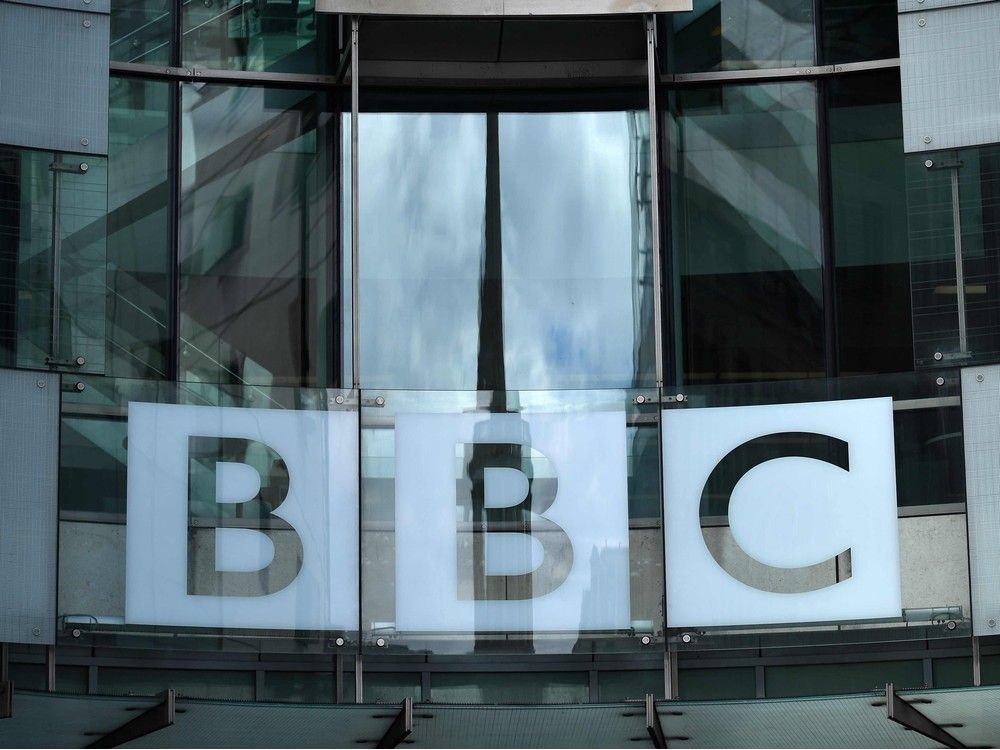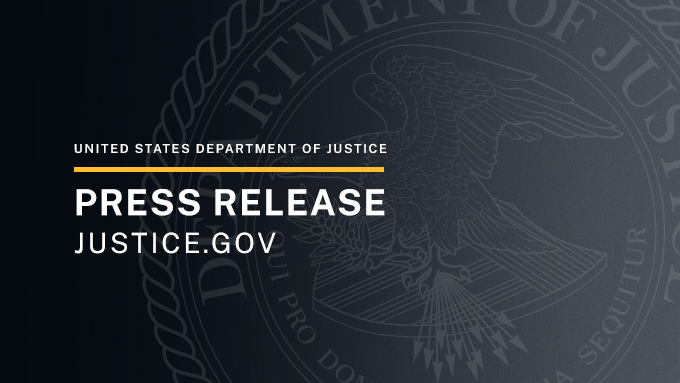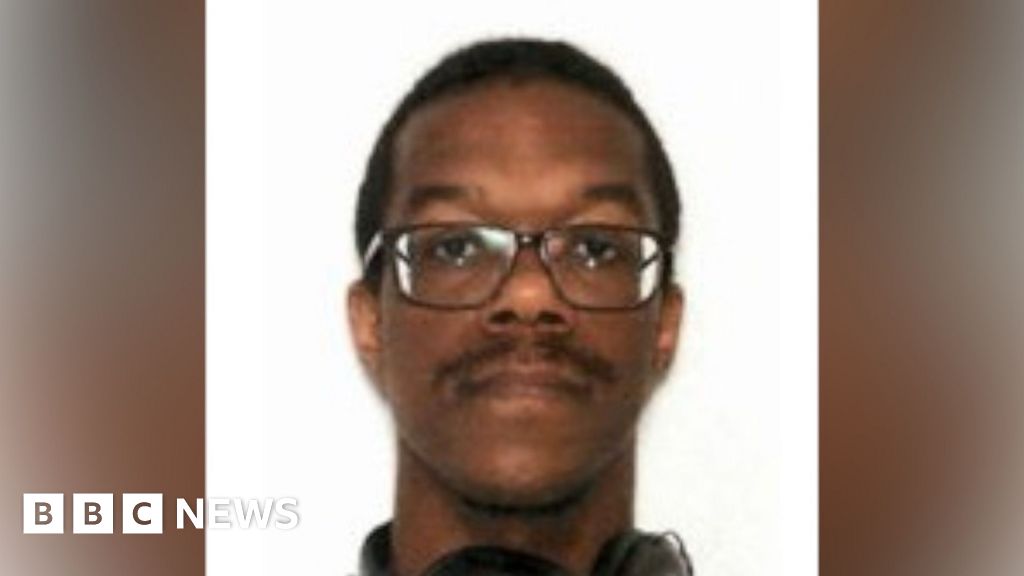Yup, my prediction was based on legality, I wasn’t anticipating a Trump administration, but in that context it’s not surprising.Looks like they settled for $5 million.

Trump administration agrees to pay nearly $5M to settle suit over Ashli Babbitt shooting in Capitol
The Trump administration has agreed to pay just under $5 million to settle a wrongful death lawsuit that Ashli Babbitt’s family filed over her shooting by an officer during the U.S.apnews.com
You are using an out of date browser. It may not display this or other websites correctly.
You should upgrade or use an alternative browser.
You should upgrade or use an alternative browser.
6 Jan 2020 U.S. Events (Split from A Deeply Fractured US)
- Thread starter Altair
- Start date
- Reaction score
- 2,141
- Points
- 1,260
In today's news, Ashli will receive full military honours.
The Capitol Police Chief described the J6 pardons as, "probably one of my worst days in this job."
The Fraternal Order of Police and International Association of Chiefs of Police criticized the pardons of 1,500 individuals convicted of crimes against law enforcement on J6:
The IACP and FOP firmly believe that those convicted of such crimes should serve their full sentences.
She still died in the act of betraying her oath to her country and constitution. That stain will never be wiped away. If people want to honour that, well, it just says something about them I guess.In today's news, Ashli will receive full military honours.
The Capitol Police Chief described the J6 pardons as, "probably one of my worst days in this job."
The Fraternal Order of Police and International Association of Chiefs of Police criticized the pardons of 1,500 individuals convicted of crimes against law enforcement on J6:
QV
Army.ca Veteran
- Reaction score
- 4,968
- Points
- 1,040
Not that this will change any of the hardcore anti-Trump and anti-US people's minds. But it is a serious problem worth thinking about, and if one side can and is doing it then eventually the side you don't support will. Dishonest, politically motivated media is causing untold damage. Not just to their political opponents but to the fabric of western society. Set aside your personal distastes of a person for a moment, think about how this wrecks our collective purpose in the free and democratic west. Who really benefits?

 nationalpost.com
nationalpost.com
This week, the Telegraph reported that the BBC “doctored” U.S. President Donald Trump’s words in a way that suggested he had incited the Jan. 6, 2021, Capitol Hill riot.
Worse, when the distortions were flagged to BBC executives as “completely misleading,” they dismissed it as a “normal practice” and “refused to accept there had been a breach of standards.” One BBC executive justified the editing, pointing to a congressional meeting packed with Democrats, which concluded that Trump was trying to overturn the 2020 election, as if that excused it. It appears Trump was right: the BBC is fake news.
According to a memo written by Michael Prescott, former independent external advisor to the broadcaster’s editorial guidelines and standards committee, and sent to its board of directors, the BBC has “serious and systemic problems” with its reporting.
The doctored speech was found in an hour-long episode of “Panorama” titled, “Trump: A Second Chance?” which aired in October 2024. Anyone watching the program would have been led to believe that Trump, standing at a podium in front of his supporters on the day of the Capitol Hill riot, said, “We’re gonna walk down to the Capitol and I’ll be with you and we fight. We fight like hell and if you don’t fight like hell, you’re not gonna have a country anymore.”
In actuality, what Trump said was, “We are gonna walk down to the Capitol and I’ll be with you. I know that everyone here will soon be marching over to the Capitol building to peacefully and patriotically make your voices heard.” Quite the difference.
There were other manipulations, as well. Immediately after the doctored speech, the video cut to an audio clip of police warning about “300 Proud Boys” heading toward the Capitol, while showing footage of Proud Boys members carrying flags and marching toward the building. The insinuation was that they were reacting to Trump’s words, when in reality, the footage was taken an hour before Trump’s speech even began.
Fifty-four minutes after Trump urged supporters to march peacefully to the Capitol, he complained about elections being “corrupt.” Speaking about election day, he said, “Most people would stand there at 9:00 in the evening and say, ‘I wanna thank you very much,’ and they go off to some other life. But I said: something’s wrong here, something’s really wrong, can’t have happened, and we fight. We fight like hell, and if you don’t fight like hell, you’re not gonna have a country anymore.”
In the memo, Prescott wrote: “Examining the charge that Trump had incited protesters to storm Capitol Hill, it turned out that Panorama had spliced together two clips from separate parts of his speech. This created the impression that Trump said something he did not and, in doing so, materially misled viewers.”
He pointed out that this is why charges were never laid against Trump: “The fact that (Trump) did not explicitly exhort supporters to go down and fight at Capitol Hill was one of the reasons there were no federal charges for incitement to riot.”
Having editorial standards is good practice, but it means nothing if executives ignore, or worse, explain away or excuse, serious issues. Executives should be consistently concerned about bias and disinformation. Like all relationships, audience trust takes a long time to earn, and is much more quickly lost.
When Prescott brought his concerns to management, he said that they “refused to accept there had been a breach of standards.” BBC chairman Samir Shah was warned of the “very, very dangerous precedent” this kind of selective editing set. But according to Prescott, Shah never replied.
Last month, the BBC apologized for committing a “serious breach” of broadcasting rules when it failed to disclose that the 13 year-old subject of its documentary, “Gaza: How to Survive a Warzone,” was the son of a Hamas official.
In Canada, we’ve seen similar media manipulation and anti-conservative bias. Last September, CTV was caught splicing together two different segments of a speech by Conservative Leader Pierre Poilievre. It took a clip of Poilievre talking about a “carbon tax election,” and placed it in a way that appeared to present him as directly attacking the dental-care program.
In CTV’s apology, the broadcaster claimed that it “presented a comment by the official Opposition Leader Pierre Poilievre that was taken out of context,” claiming that a “misunderstanding during the editing process resulted in this misrepresentation.”
In the 2024-25 fiscal year, the CBC fielded 10,384 “comments, complaints and expressions of concern,” 117 per cent more than the previous year. Despite this high number, the CBC ombudsman’s annal report is only 16 pages long and responds dismissively to a highly curated list of 17 examples said to reflect the “broader public mood.” Strangely, the report doesn’t feature a summary of findings, nor recommendations, and concludes with recently appointed CBC ombud Maxime Bertrand’s heartfelt thank you for her position. I kid you not.
The “broader public” will likely not be impressed by the news about the BBC, or CBC’s curated musings. While the BBC ignored its independent external advisor’s warnings, CBC doesn’t even seem to understand the concept of an external independent advisor.
Prior to taking the ombud role, Bertrand worked for CBC for over 30 years. Prescott, on the other hand, spent a decade as a reporter and editor with the Sunday Times before working with the BBC as an external advisor. The CBC should follow suit.

Terry Newman: BBC a case study in how liberal media loses trust
A leaked memo details how the broadcaster edited the president's speech to make him look complicit in the Capitol Hill riot
This week, the Telegraph reported that the BBC “doctored” U.S. President Donald Trump’s words in a way that suggested he had incited the Jan. 6, 2021, Capitol Hill riot.
Worse, when the distortions were flagged to BBC executives as “completely misleading,” they dismissed it as a “normal practice” and “refused to accept there had been a breach of standards.” One BBC executive justified the editing, pointing to a congressional meeting packed with Democrats, which concluded that Trump was trying to overturn the 2020 election, as if that excused it. It appears Trump was right: the BBC is fake news.
According to a memo written by Michael Prescott, former independent external advisor to the broadcaster’s editorial guidelines and standards committee, and sent to its board of directors, the BBC has “serious and systemic problems” with its reporting.
The doctored speech was found in an hour-long episode of “Panorama” titled, “Trump: A Second Chance?” which aired in October 2024. Anyone watching the program would have been led to believe that Trump, standing at a podium in front of his supporters on the day of the Capitol Hill riot, said, “We’re gonna walk down to the Capitol and I’ll be with you and we fight. We fight like hell and if you don’t fight like hell, you’re not gonna have a country anymore.”
In actuality, what Trump said was, “We are gonna walk down to the Capitol and I’ll be with you. I know that everyone here will soon be marching over to the Capitol building to peacefully and patriotically make your voices heard.” Quite the difference.
There were other manipulations, as well. Immediately after the doctored speech, the video cut to an audio clip of police warning about “300 Proud Boys” heading toward the Capitol, while showing footage of Proud Boys members carrying flags and marching toward the building. The insinuation was that they were reacting to Trump’s words, when in reality, the footage was taken an hour before Trump’s speech even began.
Fifty-four minutes after Trump urged supporters to march peacefully to the Capitol, he complained about elections being “corrupt.” Speaking about election day, he said, “Most people would stand there at 9:00 in the evening and say, ‘I wanna thank you very much,’ and they go off to some other life. But I said: something’s wrong here, something’s really wrong, can’t have happened, and we fight. We fight like hell, and if you don’t fight like hell, you’re not gonna have a country anymore.”
In the memo, Prescott wrote: “Examining the charge that Trump had incited protesters to storm Capitol Hill, it turned out that Panorama had spliced together two clips from separate parts of his speech. This created the impression that Trump said something he did not and, in doing so, materially misled viewers.”
He pointed out that this is why charges were never laid against Trump: “The fact that (Trump) did not explicitly exhort supporters to go down and fight at Capitol Hill was one of the reasons there were no federal charges for incitement to riot.”
Having editorial standards is good practice, but it means nothing if executives ignore, or worse, explain away or excuse, serious issues. Executives should be consistently concerned about bias and disinformation. Like all relationships, audience trust takes a long time to earn, and is much more quickly lost.
When Prescott brought his concerns to management, he said that they “refused to accept there had been a breach of standards.” BBC chairman Samir Shah was warned of the “very, very dangerous precedent” this kind of selective editing set. But according to Prescott, Shah never replied.
Last month, the BBC apologized for committing a “serious breach” of broadcasting rules when it failed to disclose that the 13 year-old subject of its documentary, “Gaza: How to Survive a Warzone,” was the son of a Hamas official.
In Canada, we’ve seen similar media manipulation and anti-conservative bias. Last September, CTV was caught splicing together two different segments of a speech by Conservative Leader Pierre Poilievre. It took a clip of Poilievre talking about a “carbon tax election,” and placed it in a way that appeared to present him as directly attacking the dental-care program.
In CTV’s apology, the broadcaster claimed that it “presented a comment by the official Opposition Leader Pierre Poilievre that was taken out of context,” claiming that a “misunderstanding during the editing process resulted in this misrepresentation.”
In the 2024-25 fiscal year, the CBC fielded 10,384 “comments, complaints and expressions of concern,” 117 per cent more than the previous year. Despite this high number, the CBC ombudsman’s annal report is only 16 pages long and responds dismissively to a highly curated list of 17 examples said to reflect the “broader public mood.” Strangely, the report doesn’t feature a summary of findings, nor recommendations, and concludes with recently appointed CBC ombud Maxime Bertrand’s heartfelt thank you for her position. I kid you not.
The “broader public” will likely not be impressed by the news about the BBC, or CBC’s curated musings. While the BBC ignored its independent external advisor’s warnings, CBC doesn’t even seem to understand the concept of an external independent advisor.
Prior to taking the ombud role, Bertrand worked for CBC for over 30 years. Prescott, on the other hand, spent a decade as a reporter and editor with the Sunday Times before working with the BBC as an external advisor. The CBC should follow suit.
- Reaction score
- 11,375
- Points
- 1,040
Everyone once in a while someone does something so egregiously rotten than I laugh out loud when they get caught and try to pass it off as a "mistake".
This month, the BBC is featured.
This month, the BBC is featured.
BBC is reporting in the pst hour that U.S. federal officials have arrested a suspect in connection with the planting of pipe bombs outside the Democratic and Republican National Committee offices overnight before the attack on the Capitol.
No word yet from FBI or DOJ, no suspect identity.
Precaution that as soon as suspect ID is released or leaks, expect to see a ton of bullshit flying around in the early hours until things settle a bit. Take everything you read with a whole box of salt til things firm up and are corroborated.
No word yet from FBI or DOJ, no suspect identity.
Precaution that as soon as suspect ID is released or leaks, expect to see a ton of bullshit flying around in the early hours until things settle a bit. Take everything you read with a whole box of salt til things firm up and are corroborated.
- Reaction score
- 7,640
- Points
- 1,360
Here's a bit more coming out ....BBC is reporting in the pst hour that U.S. federal officials have arrested a suspect in connection with the planting of pipe bombs outside the Democratic and Republican National Committee offices overnight before the attack on the Capitol.
No word yet from FBI or DOJ, no suspect identity.
Precaution that as soon as suspect ID is released or leaks, expect to see a ton of bullshit flying around in the early hours until things settle a bit. Take everything you read with a whole box of salt til things firm up and are corroborated.

Man Charged for Planting Explosive Devices outside the RNC and DNC on January 5, 2021
Brian J. Cole, Jr., 30, of Woodbridge, Virginia, was arrested this morning and charged for transporting and planting two improvised explosive devices (IEDs) on January 5, 2021, at the headquarters of both the Republican National Committee and the Democratic National Committee in Washington D.C...

Read The Alleged January 6 Pipe Bomber Court Records
Brian Cole of Virginia was charged with planting two incendiary devices near the Capitol. We put all the court records here.
 www.courtwatch.news
www.courtwatch.news

Brian Cole Jr. of Virginia identified as DC pipe bomb suspect: sources
The suspect arrested for planting pipe bombs outside the Republican and Democratic National Committees in 2020 has been identified as Brian Cole of West Virginia, sources confirmed to The Post.

What we know about suspected DC pipe bomber Brian Cole Jr
He is a "quiet guy" and told investigators he thought the 2020 election was "rigged", US media reports say.

What We Know About Suspect Brian Cole's Arrest in Jan. 6 Pipe Bomb Case
Cole was arrested and charged with use of an explosive device nearly five years after pipe bombs were planted in D.C.
- Reaction score
- 7,640
- Points
- 1,360
Bumped with this very latest update (following the commuting of his Jan. 6 shenanigans sentence to time served about a year ago): they're baaaaaaaaaaack ...Stewart Rhodes, 58, leader of the Oath Keepers militia, has just been sentenced to 18 years in prison for Seditious Conspiracy against the United States. He wasn’t physically present at the Capitol, nor a direct participant in violence ...

The Oath Keepers are coming back in a big bad way
Stewart Rhodes, the founder of the Oath Keepers, a far-right militia, announced in November 2025 that he will relaunch the group after it disbanded following his prison sentence in 2023.Rhodes was sentenced to 18 years in prison for seditious conspiracy and other crimes committed during the U.S...
 www.alternet.org
www.alternet.org

The ‘sacred’ pledge that will power the relaunch of far-right militia Oath Keepers
Founder Stewart Rhodes says he will relaunch the group, serving as an important outlet for thousands of members who have felt lost since his imprisonment, a scholar writes.

Oath Keepers Leader Reveals He’s Bringing Back White Supremacist Group
Stewart Rhodes is making the most of Donald Trump pardoning him.

Oath Keepers are coming back and they're ready to be Trump's militia
Stewart Rhodes, the founder of the far-right group, is attempting to relaunch his organization months after being pardoned.

The ‘Sacred’ Pledge That Will Power The Relaunch Of Far-Right Militia Oath Keepers
Stewart Rhodes announced in November 2025 that he will relaunch the Oath Keepers after it disbanded following his prison sentence in 2023.
Of course he is.Bumped with this very latest update (following the commuting of his Jan. 6 shenanigans sentence to time served about a year ago): they're baaaaaaaaaaack ...

The Oath Keepers are coming back in a big bad way
Stewart Rhodes, the founder of the Oath Keepers, a far-right militia, announced in November 2025 that he will relaunch the group after it disbanded following his prison sentence in 2023.Rhodes was sentenced to 18 years in prison for seditious conspiracy and other crimes committed during the U.S...www.alternet.org

The ‘sacred’ pledge that will power the relaunch of far-right militia Oath Keepers
Founder Stewart Rhodes says he will relaunch the group, serving as an important outlet for thousands of members who have felt lost since his imprisonment, a scholar writes.www.caledonianrecord.com

Oath Keepers Leader Reveals He’s Bringing Back White Supremacist Group
Stewart Rhodes is making the most of Donald Trump pardoning him.newrepublic.com

Oath Keepers are coming back and they're ready to be Trump's militia
Stewart Rhodes, the founder of the far-right group, is attempting to relaunch his organization months after being pardoned.www.newsweek.com

The ‘Sacred’ Pledge That Will Power The Relaunch Of Far-Right Militia Oath Keepers
Stewart Rhodes announced in November 2025 that he will relaunch the Oath Keepers after it disbanded following his prison sentence in 2023.studyfinds.org
Note that he and the others convicted of sedition had their sentences commuted, not their crimes pardoned. They are still, legally, convicted felons with everything that carries.
- Reaction score
- 6,441
- Points
- 1,260
Bumped with this very latest update (following the commuting of his Jan. 6 shenanigans sentence to time served about a year ago): they're baaaaaaaaaaack ...

The Oath Keepers are coming back in a big bad way
Stewart Rhodes, the founder of the Oath Keepers, a far-right militia, announced in November 2025 that he will relaunch the group after it disbanded following his prison sentence in 2023.Rhodes was sentenced to 18 years in prison for seditious conspiracy and other crimes committed during the U.S...www.alternet.org

The ‘sacred’ pledge that will power the relaunch of far-right militia Oath Keepers
Founder Stewart Rhodes says he will relaunch the group, serving as an important outlet for thousands of members who have felt lost since his imprisonment, a scholar writes.www.caledonianrecord.com

Oath Keepers Leader Reveals He’s Bringing Back White Supremacist Group
Stewart Rhodes is making the most of Donald Trump pardoning him.newrepublic.com

Oath Keepers are coming back and they're ready to be Trump's militia
Stewart Rhodes, the founder of the far-right group, is attempting to relaunch his organization months after being pardoned.www.newsweek.com

The ‘Sacred’ Pledge That Will Power The Relaunch Of Far-Right Militia Oath Keepers
Stewart Rhodes announced in November 2025 that he will relaunch the Oath Keepers after it disbanded following his prison sentence in 2023.studyfinds.org
FFS…
Similar threads
- Replies
- 33
- Views
- 15K

